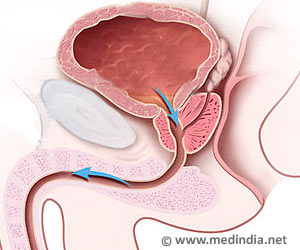Low dose chemotherapy regimen is effective in preventing tumor recurrence in certain cancers, reveals recent study.
- Cancer that comes back after treatment is known as recurrent cancer.
- Recurrent cancer may occur after few weeks to several months or years after treatment.
- Low-Dose chemotherapy regimen can prevent tumor recurrence in certain cancers
The mice study “Metronomic Chemotherapy prevents therapy - induced stromal activation and induction of tumor - initiating cells” was published in The Journal of Experimental Medicine.
Research Study on Chemotherapy Effect to Tumor Recurrence
The research team explored the effects of chemotherapy on fibroblasts (surrounding cells of the tumor) near the supportive tissues of the organ in pancreatic and breast cancer.
The findings of the study suggested that breast cancer cells were able to secrete more number of cell signaling proteins called ELR+ Chemokines in response to the commonly used chemotherapy drugs.
They found low dose chemotherapy treatment at regular intervals to be effective when compared to the traditional chemotherapy treatment.
The mice with breast or pancreatic cancer which responded well to low dose chemotherapy survived longer when compared to mice treated with maximum tolerated chemotherapy drugs.
The author also concludes that "Our results lend support to the emerging paradigm that stroma-derived signals contribute to tumor pathology."
"They also suggest that low-dose metronomic chemotherapy or targeting the chemokine signaling mediated by chemo-treated fibroblasts may improve the therapeutic outcome in desmoplastic cancers."
Tumor Recurrence
- Cancerous tumors are abnormal growth of cells which invade or spread to other parts of the body. It can start anywhere in the body.
- Recurrence usually occurs when the cancer returns back after treatment. This may occur either after few weeks to several months or years.
- Cancer recurrence may occur in the same place where the tumor had started or may develop in some other part of the body.
- Recurrent cancer is named after the original part where the cancer was first detected. For example, prostate gland cancer might develop cancer in bones and may be called as recurrent prostate cancer.
- Treatment for recurrent cancer may depend on the type of cancer, when and where it has recurred, how much it has spread and the overall health of the patient.
Drugs or medicines used for the treatment of cancer is referred to chemotherapy. These drugs are either prescribed alone or in combination for treatment.
Chemotherapy drugs act by targeting the different phases of the cell cycle.
Some of the chemotherapy drugs may include:
- Alkylating Agents - Cisplatin, Cyclophosphamide, Busulfan, Melphalan, Thiotepa
- Antimetabolites - 5 - Fluorouracil, Methotrexate, 6 - Mercaptopurine
- Antitumor Antibiotics - Daunorubicin, doxorubicin, idarubicin
- Topoisomerase Inhibitors - Topotecan, irinotecan, etoposide, teniposide
- Mitotic Inhibitors - Docetaxel, Paclitaxel, Vincristine, Vinblastine
References:
- What is cancer recurrence? - (https://www.cancer.gov/about-cancer/understanding/what-is-cancer)
- What Is Cancer? - http://www.cancer.org/treatment/survivorshipduringandaftertreatment/understandingrecurrence/what-is-cancer-recurrence)
- Cancer Statistics in India - (http://cancerindia.org.in/cp/index.php/know-about-cancer/statistics)
- How Chemotherapy Drugs Work - (http://www.cancer.org/treatment/treatmentsandsideeffects/treatmenttypes/chemotherapy/how-chemotherapy-drugs-work)
Source-Medindia















